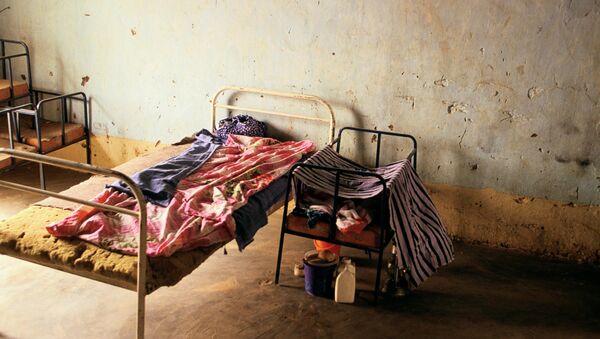One of the biggest successes of the initiative was eradication of smallpox. In fact, it was the first infectious disease of humans which was deliberately targeted and successful eradicated.
Although it was a very rare occurrence in the developed nations, thanks to the smallpox vaccine, poorer countries with lacking or nonexistent healthcare systems could not provide the same luxury to its citizens. The World Health Organization launched the Smallpox Eradication Programme in 1966 and in just 14 years it was proclaimed a success – the diseases was proclaimed eradicated in 1980.
Of course, this is not the only ailments the UN is tackling: HIV/AIDS, malaria, measles – campaigns against these illnesses had variable degree of success and most seem like an uphill battle – and not only because of the nature of the opponent.
An article by Steven J. Hoffman and John-Arne Røttingen published in the Public Health Journal in 2014 suggests the organizational problems were long evident:
The World Health Organization (WHO) has never fulfilled its original mission of simultaneously serving as the world’s pre-eminent public health authority and intergovernmental platform for global health negotiations. While WHO’s secretariat works hard to fulfill both functions, it is undermined by an institutional design that mixes technical and political mandates. This forces staff to walk uncomfortably along many fine lines: advising but never directing; guiding but never governing; leading but never advocating; evaluating but never judging.
A glaring example the inefficiency of the organization became apparent during the Ebola outbreak, which began in December of 2013. The deadly disease quickly spread through Liberia, Sierra Leone and Guinea. By the end of July, WHO reported 1,603 cases and 887 deaths; however, it was only on August 8, 2014, that World Health Organization declared the outbreak an international public health emergency. The total death toll exceeded 11,300. The reason for Ebola getting out of control on such a large scale was later deemed to stem from red tape and poor decisions made by WHO staff.
In October Associate Press published leaked correspondence between the WHO officials which confirmed suspicions that the problem could have been detected and more efforts could be taken earlier to prevent Ebola from claiming so many lives and undermining local infrastructure of the African nations. Eventually, the WHO admitted its failure, publishing a statement:
We have taken serious note of the criticisms of the Organization that, inter alia, the initial WHO response was slow and insufficient, we were not aggressive in alerting the world… we did not work effectively in coordination with other partners, there were shortcomings in risk communications and there was confusion of roles and responsibilities.
Whatever problems the WHO has, it has not yet addressed them on the structural level. However, this January the executive board adopted a resolution to introduce major reforms to the organization. Whether these changes happen and whether they will be productive, remains to be seen.

